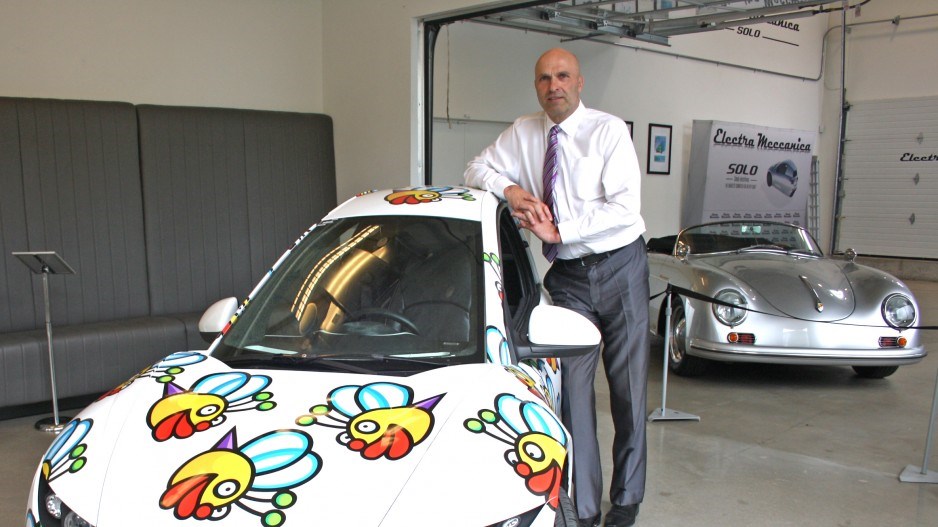Batman has his Batmobile. Wonder Woman has her invisible jet.
Perhaps the Vancouver makers of Electra Meccanica Solo, the sleek, single-passenger electric vehicle (EV), might find a willing customer in Tony Stark, who as Iron Man is used to getting around in high-tech, close-quarters transportation.
The mother-son team of Leona and Matthew Green, owners of Greens and Beans deli in New Westminster, might think so after becoming the first customers in North America to take possession of a Solo.
“He’s six foot two, 230 pounds, and he fits in there like he’s Iron Man,” Leona Green said of her son, who takes the vehicle on the highway to his home in Langley each day.
She said she and her son have been getting looks from everyone they pass by as they make catering deliveries in the Solo, which runs for just a hair under $20,000.
While Leona Green said she’s delighted to be Canada’s first Solo customer, she had to be patient after putting down a $2,000 deposit two years ago.
Boosting production is one of the company’s top priorities, said CEO Jerry Kroll.
Currently, Electra Meccanica has the capacity to produce between two and 10 vehicles per month. Meanwhile, the company has orders for 500 vehicles and plans to deliver them within a year.
“Two years was too long, so they really do need to … start mass-producing them somewhere,” she said.
The company is in talks to open facilities in India and China to meet Asian market demand, with additional facilities already operating in B.C., Italy and California.
Meanwhile, Kroll, who ran under the BC Green Party banner in this year’s provincial election, has been asking both the federal and provincial governments for a “Tesla-like” incentive to jump-start the local clean-tech manufacturing industry.
The response has been muted, he said.
“When they [Tesla] unveil a new vehicle [they get] 400,000 pre-orders and their market cap is over $60 billion – and our governments can’t see where the future of industry is going?” Kroll asked.
The BC Liberals promised in the June 22 throne speech to spend $50 million to boost EV infrastructure throughout the province, adding 4,300 charging stations over the next five years. But none of that funding is earmarked for incentives that would help the local clean-tech industry build EVs.
The province offers two tax credits that could benefit firms involved in research and development for EVs: the scientific research and experimental development (SR&ED) tax credit and the small-business venture capital tax credit program.
However, the federal version of SR&ED does not offer targeted tax credits to businesses working in EVs.
“If it wasn’t for a couple of people like Elon Musk at Tesla and Carlos Ghosn at Nissan really going out on a limb and taking some big risks to develop [EVs], we probably wouldn’t have them today,” said Bruce Sharpe, president of the Vancouver Electric Vehicle Association.
“Neither would we have them if the government hadn’t played a role with supply-side policies.”




